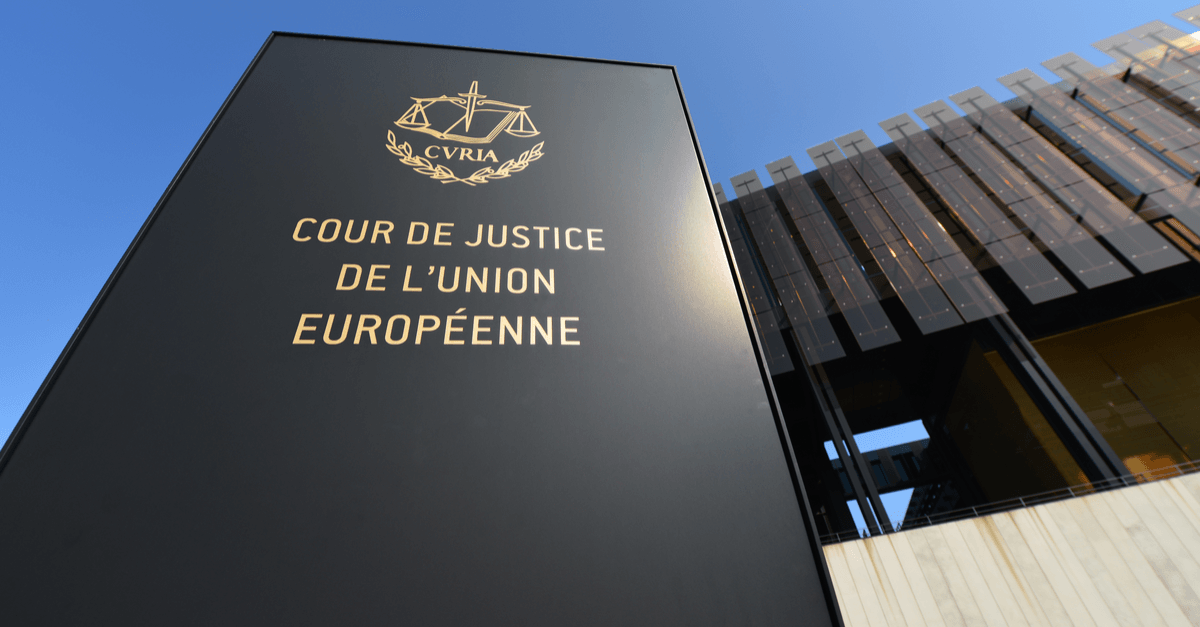Europeans: Thinking of blaming your illicit file sharing activity on a family member to get off the hook? Forget it. The European Court of Justice (ECJ) just closed that particular loophole.
Earlier this month, the ECJ ruled in the case of German publisher Bastei Lübbe vs internet user Michael Strotzer. In May 2010, someone shared one of the company’s audiobooks on a P2P file sharing service via Strotzer’s internet connection. After he failed to comply with a cease and desist notice, the publisher sued him for damages in a Munich court.
Shared internet access
Strotzer denied infringing any copyright himself, instead asserting that his computer was switched off at the time the infringement happened, and that his parents also had access to his internet connection. However they don’t use file sharing services and didn’t have the audiobook in question, he added.
The Munich court seized on the fact that Strotzer’s parents had access to the internet connection. This meant he couldn’t be held liable, it said. So Bastei Lübbe appealed to a regional Munich court.
The regional court believed that Strotzer probably had shared the material online, but agreed that he couldn’t be held liable because others had access to his connection. The intellectual property (IP) rights holder couldn’t dig any deeper into what Strotzer’s parents may or may not have done because of how German national law interprets article 7 of the Charter of Fundamental Rights of the European Union, which protects family life.
The regional court asked the ECJ to rule whether its decision was appropriate. Should someone whose internet connection is used to share files be let off the hook if they simply name a family member with access, even if they don’t provide any information about that family member’s online activities?
A rock and a hard place
The ECJ was stuck between a rock and a hard place. There were two pieces of European law at issue that contradicted each other. The German national law interpreting the Charter competed with Directive 2004/48, known as the Enforcement Directive, which deals with enforcing IP rights. It says that intellectual property rights holders have the right to see any evidence in the defendant’s possession relating to IP violations.
The ECJ ruled that interpreting the Charter as it did makes it almost impossible for IP rights holders to make a case. So it decided that the IP laws should effectively win out over Germany’s national laws. It said that the German courts would have to figure out their own way of compelling alleged pirates to hand over evidence of what happened on their internet connections.
In short, you can’t avoid liability for piracy simply by saying that a family member had access to your connection.

wrwolf2
funny story and not reporting many details about the case.
has the defendant purchased and then shared his own copy or actually shared someone else’s ? in addition, when reading ” regional court asked ECJ to rule whether its decision was appropriate ” all of US feel shocked and amused at the same time… ” r.c asked mom&dad whether they ( r.c ) did their homework right ? ”
we all pay taxes that are meant to feed adults ( services with adults; r.c with adults ) and they should know themselves whether a decision is appropriate ( in a HERE&NOW space and time ) in germany and then.
Matt Parkes
By the same token if he had a brain could he not have stated that anyone could have brute forced his internet SSID (assuming wifi was available too) and therefore potentially another malicious individual outside his home with a laptop could be the perpetrator?
Mr. Bojangles
Esp. if he forgot to patch for KRACK attack.
Aron M
Exactly. Do we take full responsibility for everything that happened on our broadband connection? It’s like someone breaking into my home and committing a crime becomes my responsibility since it happened on my property.
Alexander
Intellectual property rights (big business enforcing its monopoly to perpetual effortless income)win out over inalienable constitutional rights?
Not making a great name for yourself on this one EU…..
Steve
Since when are “big business” the exclusive holders of intellectual property?
wrwolf2
@alexander
we don’t totally agree !
IP is huge business for most of US and still the matter this post won’t report clearly is the scenario the defendant, Michael Strotzer, was actually involved.
A) has Michael Strotzer ( the defendant ) actually purchased the audio book ( making payment to a recognized distributor or to the publisher ) and then shared with others on P2P platforms ( torrent etc. etc. ) ?
B) has the defendant ( Michael Strotzer ) searched and found the audio book on the net ( while surfing/browsing internet ) and obtained a copy of the audio material by means of software for P2P connections ( torrent.. etc. etc. ) ??
the latter scenario has no impact on IP and copyrights violations, the end-user has no responsibility about what distributors ( or others ) illegally distribute ( make available ) on the net and i doubt the defendant, actually infringed IP such as replacing the details about the author of the audio book ( which would also be identity fraud and theft to a certain extent. )
in the case of a first scenario ( scenario A ) however, the defendant has agreed to terms and binding himself to a contract ( terms of service or terms & conditions, license agreement ) applying to regular payment transactions ( purchase. ) we could still argue it may be questionable the way authorities and then the publisher ( Bastei Lübbe ) actually obtained the personal details ( sensitive data ) of the defendant , whether those information are evidence admissible in court.